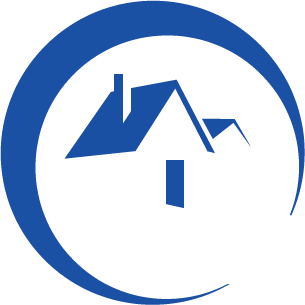Financing a mortgage can be challenging to understand, and even harder to walk into for the first time. Homeowners have found novel ways to generate extra cash, like through a third mortgage – the lesser-known cousin of first and second mortgages. Third mortgages are less popular than either first or second, but they are gaining traction with some homeowners in Ontario. They can help meet unexpected expenses, consolidate debt, and even involve new investments. However, before acquiring a third mortgage, you’ll want to know precisely what they are and how the process works.
What Is a Third Mortgage?
The third mortgage will be precisely what the name implies: it is a third loan secured by the value of your home and subordinate to your first (primary) mortgage and any second mortgage or home equity loan. It will be based on the residual value still left in your house, above that collateral pledged to the first and second lenders. Essentially, it is another lien against your property, secured by your property’s value.
The interest rate on the third mortgage is more than that on the first and second mortgages due to risk. In the event of foreclosure, any proceeds from the property sale are paid back to the first and second lenders before any payment is made to the third. Due to the elevated risk, third mortgages mainly originate from private lenders or alternative lenders, as opposed to banks and other conventional financial institutions.
How Does a Third Mortgage Work?
Securing a third mortgage is comparable to getting another mortgage. A lender assesses the residual equity in your home, your capacity to repay, and your overall financial position. Approval is based mostly on accessible equity rather than traditional measures such as credit score. Unlike conventional first mortgages, which may have fixed, lower rates, third mortgages often have higher interest rates and shorter payback durations.
A third mortgage is usually offered as a single lump amount with principal and interest payments due each month. It’s important to keep in mind that these terms vary and may include interest-only or balloon structures, depending, of course, on the lender. Third mortgages, however, frequently have shorter periods because of their elevated risk. With the idea that you will quickly repay or refinance the loan, they might last anywhere from six months to three years.
Who Can Apply for a Third Mortgage?
Third mortgages are intended for homeowners who have exhausted traditional borrowing alternatives or whose circumstances have changed, making it difficult to secure normal loans. People with outstanding equity but bad credit ratings or inconsistent income are typical candidates, as they may not be eligible for bank loans. When regular refinances or unsecured loans are unaffordable, third mortgages provide a temporary solution.
Since emergencies often arise, a borrower would obtain a loan that includes debt consolidation, business activity financing, home improvement for value appreciation, or tackling significant unforeseen expenses.
Risks and Benefits of a Third Mortgage
Knowing the associated risks and the potential benefits is a prime consideration for a third mortgage application. A heavy risk is the threat of foreclosure or power of sale, as a third secured loan will increase your monthly obligations. In case of failure, the third lender could start the legal process. If they don’t, the other mortgage holders may take some steps based on the accumulation of the missed payments. In other words, there is less chance of paying the loan back due to high interest rates that usually come with third mortgages. This can aggravate already-weakened financial states.
Nonetheless, third mortgages provide significant benefits. The main advantage of a third mortgage is the possibility of getting cash, especially where other means of financing are not available. When used wisely, it can help clear debts, invest intelligently, and even serve as a source of cash for emergencies, giving you financial room to move. A third mortgage will offer excellent short-term funding options for people wanting to improve their financial standing.
How Lenders View Third Mortgages
When financial constraints arise, third mortgages pose a grave risk to lenders as they are the last repaid during hardships. Therefore, a lender verifies before giving the loan. This could mean checking credit ratings, potential accessibility of equity, and payment capability. They require complete financial statements and property valuations to ensure adequate equity will offset the loan.
Most third mortgage lenders are not banks but instead are private companies. These lenders are often more lenient. They look at the equity in your home over rigid income or credit requirements. However, in exchange, they would charge higher interest rates and impose additional fees or penalties. This, in their eyes, balances their increased risk of default.
Should You Consider a Third Mortgage From a Lender?
Choosing a third mortgage means weighing your needs and the danger that comes with it. When refinancing or regular loans won’t work, third mortgages are often a great option. There’s almost always some extra financial risk involved in this kind of loan, usually with much higher interest rates. It suits people who plan to improve their economic situation shortly to refinance or pay off the debt relatively quickly.
Borrowers experiencing a prolonged spell of financial difficulty should be cautious about making such a decision. High fees or strict repayment terms may worsen your situation and lead to power of sale or additional financial stress. Consulting a mortgage specialist or financial counsellor to determine whether a mortgage is right for your present circumstances is a step in the right direction.
Making a Strategic Decision on Third Mortgages
A third mortgage, more often than not ill-advised, nevertheless provides critical financial assistance to Ontario homeowners facing extraordinary or imperative financial difficulties. Homeowners should be made aware of the various permutations of third mortgage schemes. They should know how they work and which parties might benefit from them. While providing more liquidity and short-term flexibility, it is essential to weigh these advantages against possible disadvantages.
Ultimately, deciding to secure a third mortgage should never be taken lightly. Homeowners should make a great effort to analyze their financial profile, review all options for repayment, and seek professional input. A third mortgage can chart a course through financial troubles without compromising the owner’s long-term financial well-being through prior preparation and skilled guidance.






